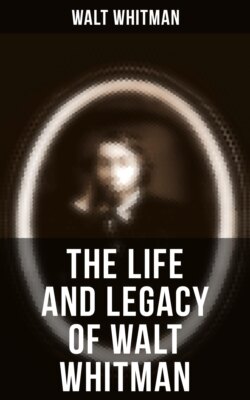Читать книгу The Life and Legacy of Walt Whitman - Walt Whitman - Страница 61
На сайте Литреса книга снята с продажи.
SUMMER OF 1864
ОглавлениеTable of Contents
I am back again in Washington, on my regular daily and nightly rounds. Of course there are many specialties. Dotting a ward here and there are always cases of poor fellows, long-suffering under obstinate wounds, or weak and dishearten'd from typhoid fever, or the like; mark'd cases, needing special and sympathetic nourishment. These I sit down and either talk to, or silently cheer them up. They always like it hugely, (and so do I.) Each case has its peculiarities, and needs some new adaptation. I have learnt to thus conform—learnt a good deal of hospital wisdom. Some of the poor young chaps, away from home for the first time in their lives, hunger and thirst for affection; this is sometimes the only thing that will reach their condition. The men like to have a pencil, and something to write in. I have given them cheap pocket-diaries, and almanacs for 1864, interleav'd with blank paper. For reading I generally have some old pictorial magazines or story papers—they are always acceptable. Also the morning or evening papers of the day. The best books I do not give, but lend to read through the wards, and then take them to others, and so on; they are very punctual about returning the books. In these wards, or on the field, as I thus continue to go round, I have come to adapt myself to each emergency, after its kind or call, however trivial, however solemn, every one justified and made real under its circumstances—not only visits and cheering talk and little gifts—not only washing and dressing wounds, (I have some cases where the patient is unwilling any one should do this but me)—but passages from the Bible, expounding them, prayer at the bedside, explanations of doctrine, &c. (I think I see my friends smiling at this confession, but I was never more in earnest in my life.) In camp and everywhere, I was in the habit of reading or giving recitations to the men. They were very fond of it, and liked declamatory poetical pieces. We would gather in a large group by ourselves, after supper, and spend the time in such readings, or in talking, and occasionally by an amusing game called the game of twenty questions.
